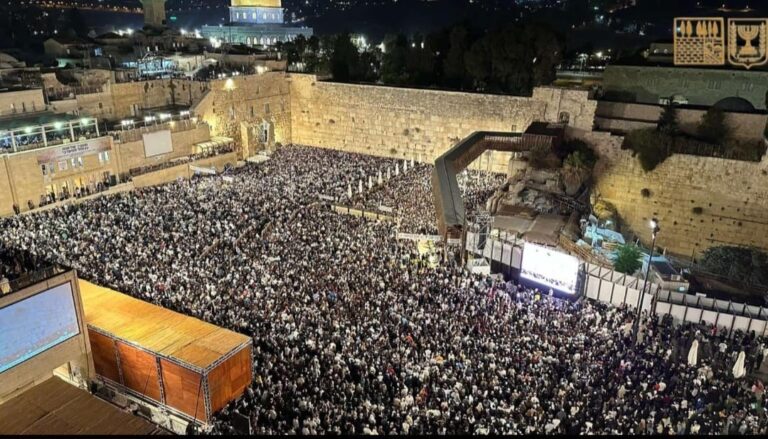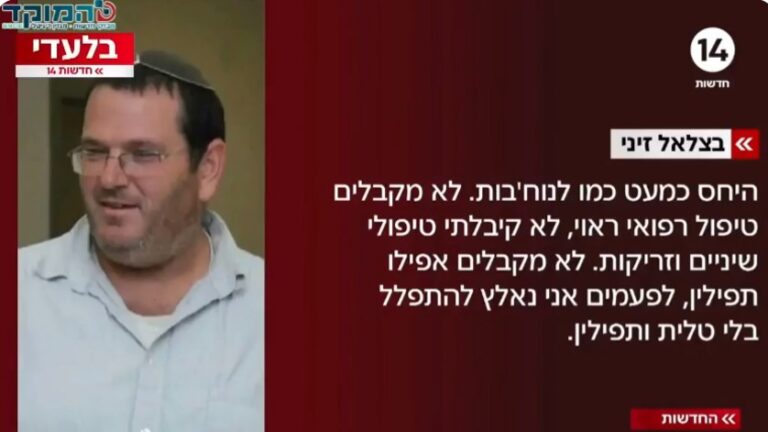By Rabbi Yair Hoffman for 5tjt.com
This article is dedicated l’Ilui Nishmas Shifra Bas R’ Yisroel Eriyah, who passed away yesterday. May her neshama have an aliyah.
Recently, a story emerged about a French Avreich in Kollel Chazon Ish who was left millions of dollars in a will by his 80 year-old observant father that involved a chain of some twenty hotels. However, since the will under discussion (if there was one for him to sign) – involved him having to sign some sort of a partnership agreement with others who did not observe Shabbos, the Avreich gave up on the money in the inheritance. Very few details were offered, except for that some Rabbis tried to employ some form of leniency. The Avreich, however, decided to forgo the moneys involved.
The people involved wish to remain anonymous, but, somehow, some of the information was revealed. The details of the entire episdoe are somewhat confusing, but a friend asked me whether the Avreich’s actions was the halacha. What follows is a discussion of four possible underlying halachic issues.
- Benefitting from Chillul Shabbos
- The Halachic Concept of “Breirah”
- Lifnei Iver Lo Sitain Michshal
- Mesaya Lidei Ovrei Aveirah
We will attempt to deal with each of these underlying issues.
The Shulchan Aruch (OC 318:1) rules that one who cooks on Shabbos (or does any of the other Malachos) – if done on purpose, it (the byproduct) is forbidden to him forever and for others it is forbidden until Saturday night. If done in error it is forbidden to everyone on Shabbos and permitted to all on Saturday night.
Based upon this halacha, the Mishna Brurah (318:5) and the Mogain Avrohom (end of 318:2) permit others who did not violate Shabbos to benefit from the Shabbos violation on Saturday night – even if the violation was done for them.
A MUMAR [AN APOSTATE JEW]
However, if the violation was done by a Mumar [an apostate Jew], Rav Yoseph Teumim, the author of the Pri Magadim writes in two separate places that there exists a question (See Mishbetzes HaZahav 276:5 and Aishel Avrohom 325:22) whether the recipient Jew may benefit from it.
The responsa Har Tzvi (OC 183) writes that a Mumar cannot be any worse than a gentile who performed Malacha for a Jew and concludes that he can wait “bichdei sh’ya’asu” – the time that it takes to have performed the actual violation and tack that amount of time onto Saturday night, and then derive benefit from it.
A BUSINESS THAT IS REGULARLY OPEN ON SHABBOS
The Ksav Sopher (OC Siman 50) writes that a business that is open regularly on Shabbos is also considered just like the malacha done by a Mumar. The Sefer Kehilas Yaakov (Vol. II Siman 7) takes a stringent view which forbids it based on the Ksav Sopher’s view. The work Machazeh Avrohom (Siman 48) written by Rav Menachem Steinberg writes, however, that even according to the stringent view of the Pri Magadim it is only forbidden if the Jew commanded the Mumar to do it for him, but if he did so of his own accord then he must only wait Bichdei Sh’ya’asu as well. This would also apply to the business that is regularly open on Shabbos.
THREE MITIGATING ISSUES
There are, however, two mitigating issues – even according to the stringent view.
The benefit we are discussing is not in the actual byproduct of the Shabbos violation, but only in the financial value of that by product. Now while here, in the case of hotels, it seems that the byproduct itself is the end-money that results from the hotels being open. The Sefer Shvisas HaYam (19:3) concludes that by virtue of the fact that the Mishna Brurah does not draw a distinction between the value and the byproduct and permits them both he is lenient in both cases. Rav Moshe Feinstein (IM OC Vol. I #91 and the Melamed L’Ho’il (OC Vol. I Siman 34) seem to differ, however.
The second mitigating issue concerns the value of the company itself that was built through Shabbos violation. It is not altogether clear that the higher value of the company is because of the Shabbos violation and not because of overall economic issues.
The third mitigating issue involves, what per se is the actual Shabbos violation in running the hotel on Shabbos. Much of what is done is through a havla’ah, where what is paid for includes a Friday check-in and many of the credit card companies only make the actual charge after the weekend.
BREIRAH
There is a concept called “Breirah” which means the assignment of which specific portion is allocated to whom. For Torah prohibitions, the ruling is that if a part of it comes from something forbidden – then one may not assume that “your allocation” stems from the permitted section. However, when dealing with a Rabbinic prohibition, we rule that there is Breirah [See Rambam Hilchos Trumah 1:21 and Hilchos Maaser (7:1)]. Since “Maaseh Shabbos” is a Rabbinic prohibition and not a biblical one, then the Avreich could assume that the Shabbos profits are not allocated to him. Interestingly enough, the downside of this assumption may create a Lifnei Iver (a stumbling block) for the other Jewish partners! However, this stumbling block would be mitigated by two other factors. 1] The Beis Yoseph YD 109 cites views that in a kashrus issue of a mixture of kosher and non-kosher where a majority would yield a permissive ruling – one person may eat all three pieces. There is a debate between the Rashba and Rosh as to whether they may be consumed simultaneously or not, but the halacha is that it may be consumed. Thus, in a case of partners where we do say Breirah, perhaps each individual partner would be permitted to assume his own Breirah. The second mitigating factor is that the Shach in YD 151:6 holds that if the person is considered a Mumar, a heretic, then the prohibition of Mesayeh Lidei Ovrei Aveirah does not apply. Although Poskim do not generally accept this view, it may be a consideration in combination with other factors.
LIFNEI IVER LO SITAIN MICHSHAL
The other issue is the idea of Lifnei Iver, or placing a stumbling block before the blind. A partner in a business that is open on Shabbos, even if he himself is not working on Shabbos may be in violation of placing a stumbling block before him. The topic is discussed in tractate Avodah Zarah 6b wherein someone from the other side of a river hands over wine to a Nazir – someone forbidden in that wine. Most Poskim rule that the biblical prohibition is only where there are two sides of the river involved – in other words, where he could not have obtained the forbidden product without him. Applied in our case, perhaps one would have thought that the biblical prohibition may be applicable here, but if he did not own the hotel in partnership, someone else would have it. So, according to most Poskim there would be no biblical prohibition since this would be considered “one side of the river.” There is the view of some Achronim that the Rambam holds there is a biblical prohibition even when there is only one side of a river (see Melamed l’Ho’il OC Vol. I #34), but this is a minority opinion.
There is another caveat known as the Mishnah Lamelech’s caveat (Hilchos Malveh uLoveh 4:2). The author, Rav Yehudah ben Shmuel Rosanes (1657–1727), chief rabbi of the Ottoman Empire, writes: if the only other enablers are Jewish too, then the prohibition of lifnei iver is still violated. This can be mitigated by the idea that if there is a doubt as to whether the violation will actually transpire (See TaZ YD 151:1 and Tzitz Eliezer Vol. IV 5:3).
THE RABBINIC VIOLATION OF MESAYEI LIDEI OVREI AVEIRAH
The Baalei HaTosfos (Shabbos 3a “Bava”) are of the opinion that there is a Rabbinic prohibition called Mesayei Lidei Ovrei Aveirah, helping the hand of those who sin – even if it is considered one side of the river. The Dagul Mervavah (on the Shach in YD 151:6), however, holds that when the violator is willful and it is only a rabbinic violation, there is no rabbinic prohibition either.
But do we rule like the Dagul Mervavah that says that there is no rabbinic prohibition when the violator is willfully violating it? Rav Moshe Feinstein (IM YD I #72) rules that one can only rely upon the Dagul Mervavah in combination with another factor – which does exist in our case. The Mishnah Berurah (347:7) disagrees with the Dagul Mervavah. But once again that is where there is a clear violation involved – here it would still be considered a doubt – or Safaik.
CONCLUSION
Although there is room to be stringent, it seems that there is certainly ample room to agree to a partnership arrangement. This author is not privy, of course, to the underlying questions and details involved, but it seems that the question should be posed to the leading Gedolim of the generation. What was discussed above is merely to inform people of the complex halachic issues involved.
The author can be reached at [email protected]











